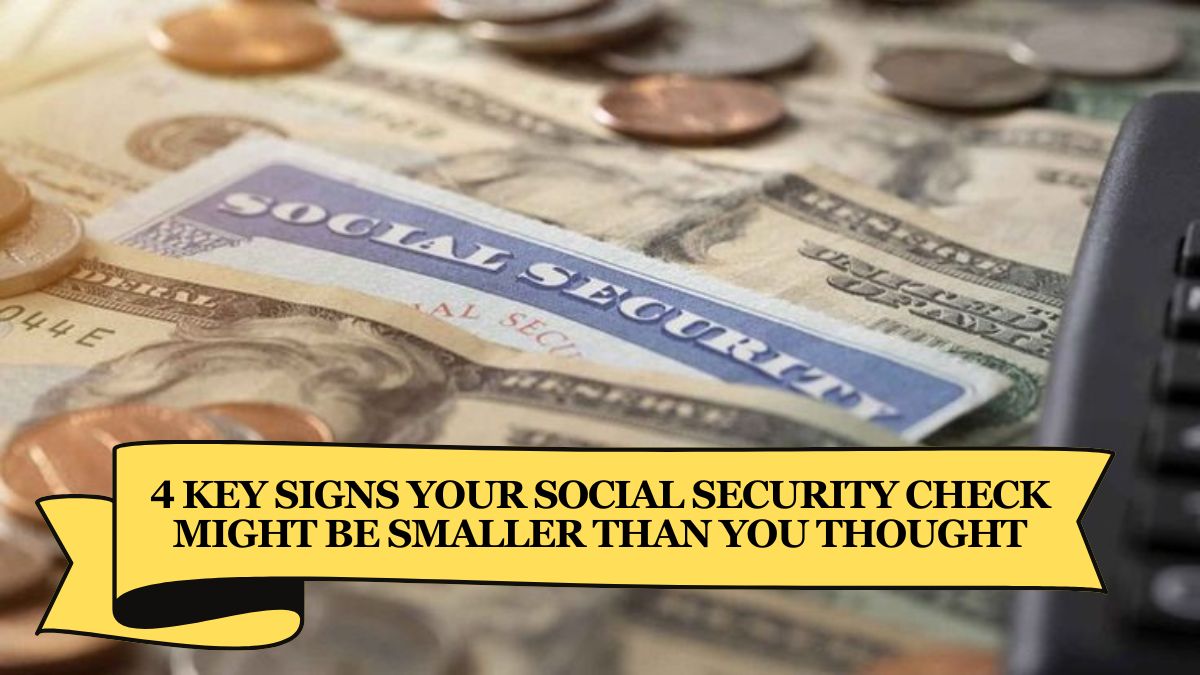When you retire or get closer to retirement, Social Security can be an important source of income. However, many people are surprised when they see their Social Security checks are smaller than expected. There are several reasons why this might happen, and understanding these reasons can help you plan better for the future. In this article, we will discuss four key signs that could explain why your Social Security check might be smaller than you anticipated.
Your Earnings Weren’t Great
One of the most important factors in determining your Social Security benefits is how much you earned during your working years. Social Security benefits are based on your lifetime earnings, so the more you paid into Social Security taxes over the years, the higher your monthly benefits are likely to be.
If your income during your working years was lower, this could lead to a smaller Social Security check. The Social Security Administration uses a formula to calculate your benefits, and it averages your highest 35 years of earnings. If your earnings were not high enough, your average earnings will be lower, resulting in smaller benefits when you retire.
You’re Still Working
You might decide to start taking Social Security benefits early, at age 62, and continue working at the same time. While this is allowed, it could affect the amount of money you receive each month. Social Security has an income threshold, and if you earn more than a certain amount, your benefits will be reduced.
For example, in 2025, if you earn more than $23,400 while claiming Social Security, the government will deduct $1 from your Social Security check for every $2 you earn over that limit. Once you reach full retirement age, which is typically 67, the income threshold increases to $62,160. In this case, Social Security reduces your benefits by $1 for every $3 you earn over that amount.
So, if you’re still working and earning a substantial income, your Social Security check might be smaller than you expected.
You Took Your Benefits Early
You can begin receiving Social Security benefits as early as age 62, but this means your monthly checks will be smaller. If you claim benefits before reaching your full retirement age (usually 67), you will receive a reduced amount.
For example, if you were expecting $2,500 per month but decided to claim benefits at age 62, you might only receive $1,750 a month, which is $800 less than you expected. This reduction is a result of claiming benefits early, and the longer you wait to claim, the higher your benefits will be.
If you wait until you reach age 70 to claim Social Security, your monthly benefits will be 8% higher for every year you delay. So, if you wait, you could receive more money each month, but it means you’ll need to wait longer to start receiving benefits.
You Worked Less Than 35 Years
The Social Security Administration calculates your benefits using the highest 35 years of your earnings. If you worked fewer than 35 years, some of your years will have $0 income, which lowers your average earnings. This can lead to a smaller Social Security check.
For example, if you decided to retire early or took time off between jobs, you might have a few years where you didn’t earn any income. These years with no income will count as $0 in the formula, which can bring down your average earnings and, as a result, your Social Security benefits.
The more years you work and the higher your earnings, the larger your Social Security check will be. If you have fewer than 35 years of earnings, you may see a significant reduction in your monthly payments.
Conclusion
In summary, there are several reasons why your Social Security check might be smaller than expected. Your earnings during your working years, whether you continue to work after starting Social Security benefits, when you decide to start taking your benefits, and how long you’ve worked all play a role in determining how much money you will receive each month. Understanding these factors and how they affect your benefits can help you better plan for retirement. If you’re concerned about the size of your Social Security check, it may be a good idea to talk to a financial advisor for guidance on how to make the most of your benefits.
Must Visit: California State Online

